Taylor Deupree
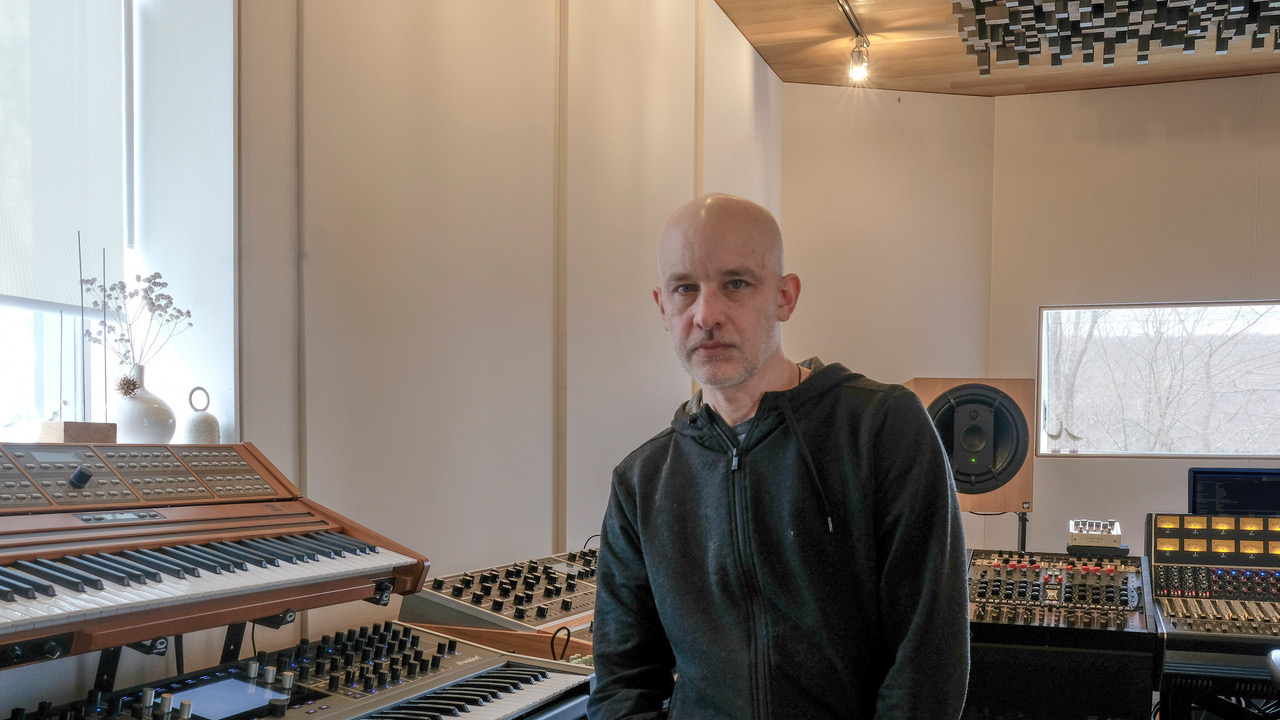
Deupree is an accomplished sound artist whose recordings, rich with abstract atmospherics, have appeared on numerous record labels, and well as in site-specific installations at such institutions as the ICC (Tokyo, Japan) and the Yamaguchi Center for Arts and Media (Yamaguchi, Japan). He started out, in the 1990s, making new noises that edged outward toward the fringes of techno, and in time he found his own path to follow. His music today emphasizes a hybrid of natural sounds and technological mediation. It’s marked by a deep attention to stillness, to an almost desperate near-silence. His passion for the studio as a recording instrument is paramount in his work, but there is no hint of digital idolatry. If anything, his music shows a marked attention to the aesthetics of error and the imperfect beauty of nature, to the short circuits not only in technological systems but in human perception.
And though there is an aura of insularity to Depuree’s work, he is a prolific collaborator, having collaborated with the likes of Ryuichi Sakamoto, David Sylvian, Christian Fennesz, Ichiko Aoba, S. Carey, Stephan Mathieu, Stephen Vitiello, Marcus Fischer, Arovane, Federico Durand, Christopher Willits, Frank Bretschneider, and Tetsu Inoue just to name a few.
Deupree dedicates as much time to other people’s music as he does to his own. In 1997 he founded the record label 12k, which since then has released over 150 recordings by some of the most accomplished musicians and modern sound artists of our time. Many share with Deupree an interest in stark minimalism, but the label has also found room for, located a common ground with, the acoustic avant-garde, the instrumental derivations of post-rock, and the synthetic extremes of techno.
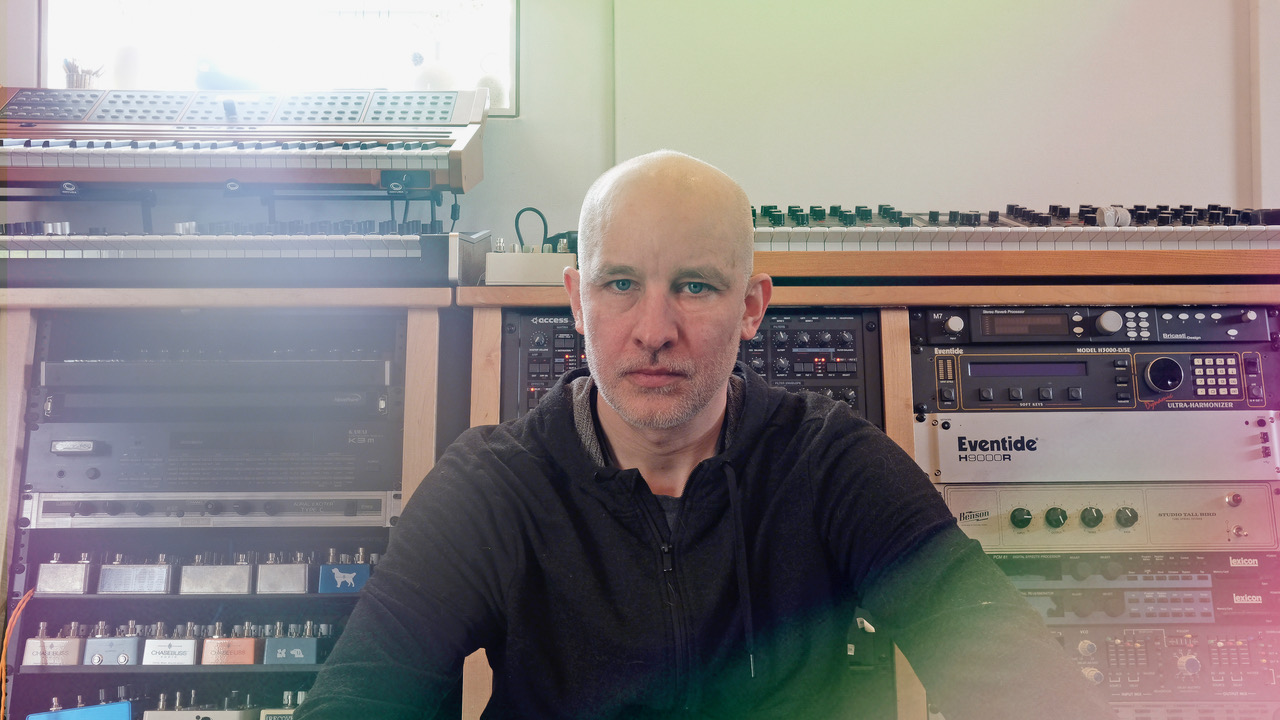
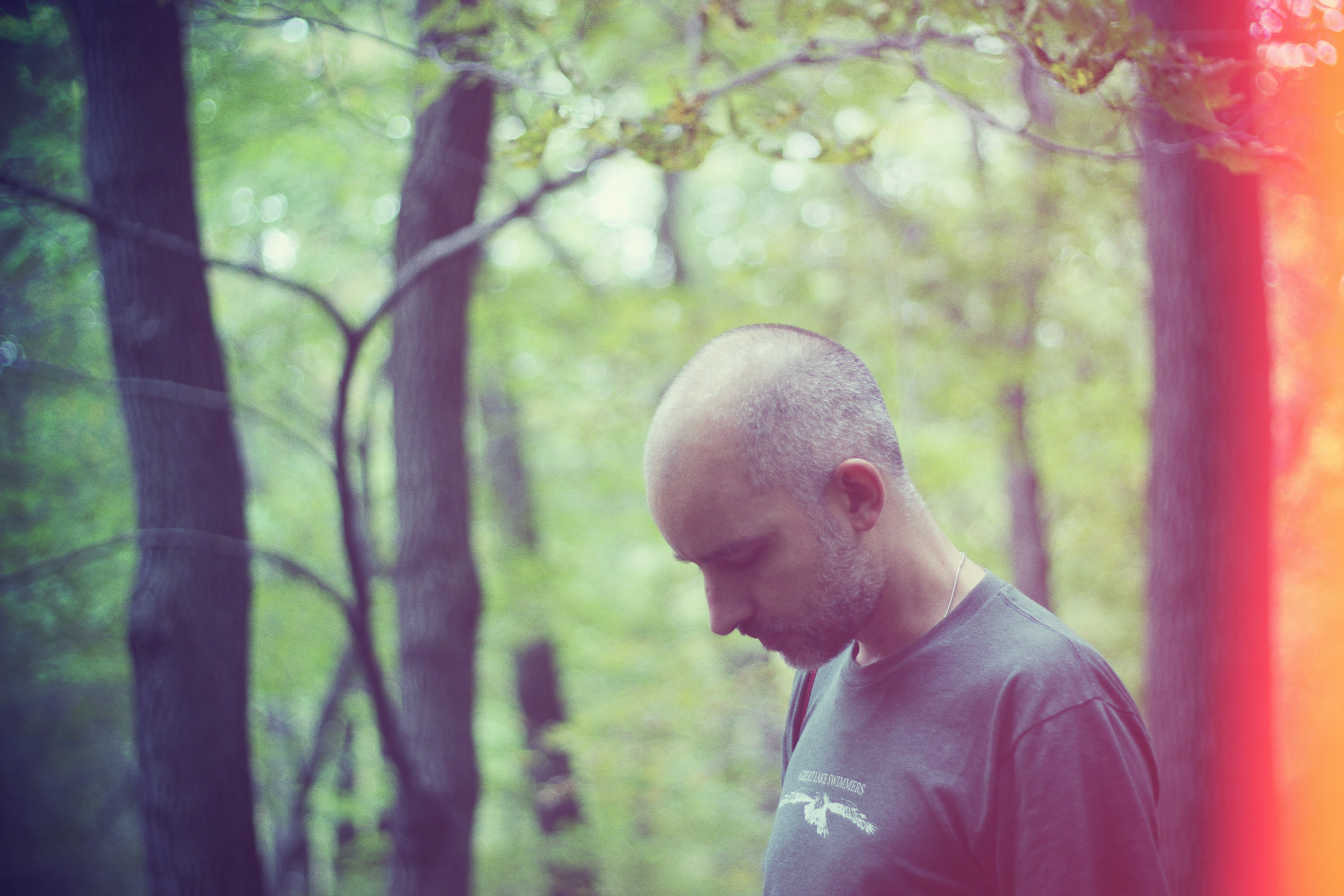
How did you start making music?
How did you start making music?
I was a young teenager in the 80’s and come from a musical family. As soon as I heard synth-based music I knew that being a musician was my calling. At the time I was a drummer in the school band but began to research synths. Before the internet it was Keyboard Magazine and hanging out in music stores. Once I saw the artist Howard Jones play live I realized this opportunity to be a “one man band,” to be able to create this music by myself. It was incredibly eye-opening. I sold my drum set and bought a synth (Juno-106). I met a guy in my school who was into the same music as I was and had also just bought a synth (a Korg DW-8000) and introduced me to “Thursday Afternoon” by Brian Eno and together we spent the rest of high school creating our own music and slowly building up a small studio of synths, drum machines and a 4-track recorder. I never stopped.
What was your first synth?
What was your first synth?
It was the aforementioned Juno-106 and I remember thinking, naively, that now, with a synthesizer, i could literally make any sound in the world. Of course, I learned quickly the limitations of the instrument and thus began decades of buying, selling and exploring instruments that could bring the sounds in my head out into the ether.
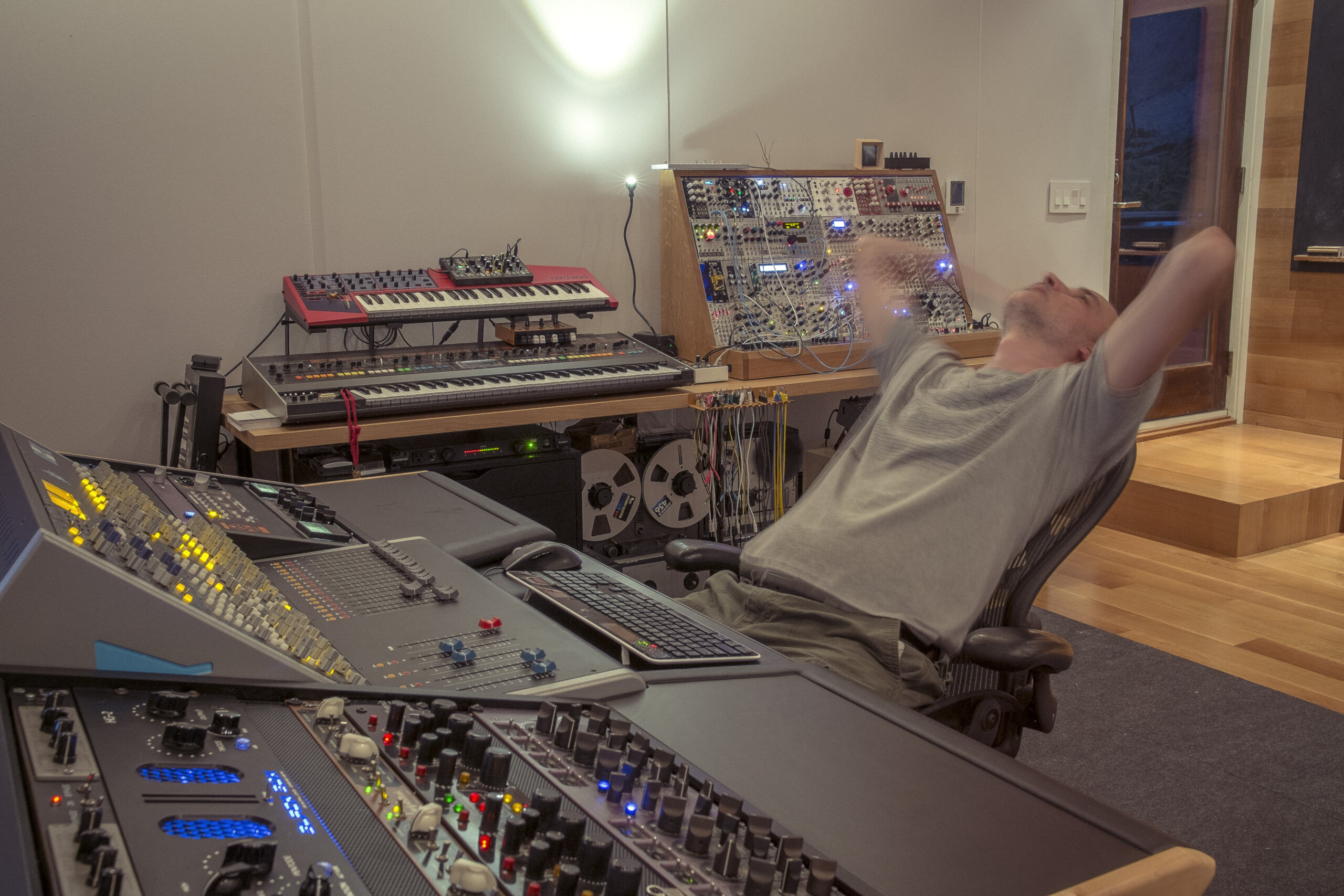
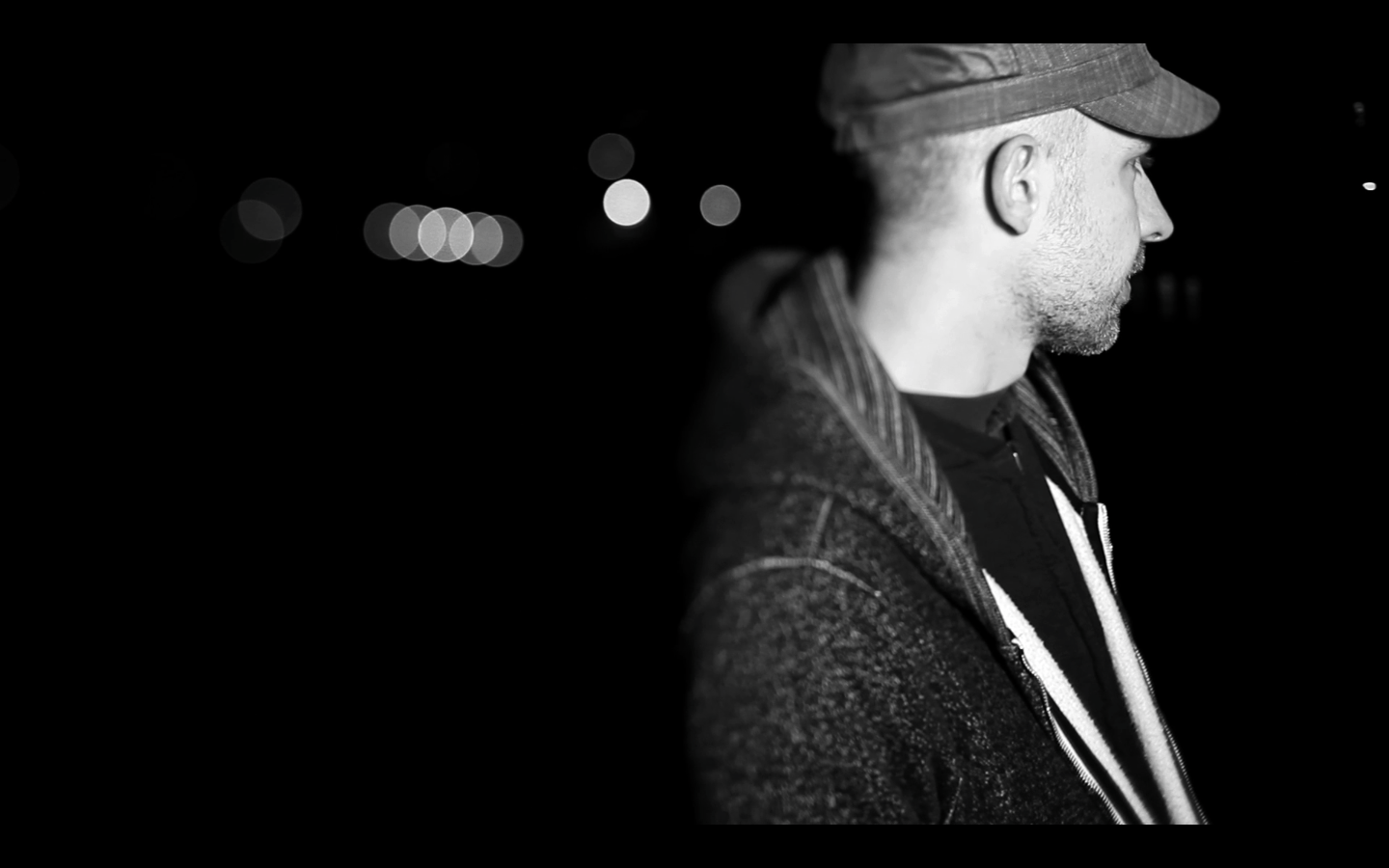
What is the first thing you do…
when approaching a new synth?
The first thing is to sit with the manual and read it cover to cover while the synth is in front of me stepping through the features. I love reading manuals and find that knowing all that an instrument can do (especially the idiosyncratic system/management type of stuff) speeds up the process in using it. I also find that the more you know about a synth the easier it is to break its rules. As I’m going through the synth and manual i will start writing over the presets with my own patches. I have been programming synths ever since that 106 and it’s a bit part of my workflow. Sometimes i’ll simply INIT every patch before i start, if possible.
What inspires your music?
What inspires your music?
As typical as it sounds, I’m inspired mostly by nature. Not only its beauty and quietness but also its power and danger. I seem to gravitate towards stark landscapes such as the snowy winter or the rugged, minimalist beauty of places Iceland. This quiet, but powerful presentation of nature I find affects me pretty deeply. It is the balance between beauty and fragility, the hush and peacefulness of landscape while at the same time being keenly aware that mother nature, not you, is in control. I also find the seeming randomness and imperfections of natural objects are a huge inspiration to me. I like sounds that are rough around the edges, a little worn away. Scrape off the shine to reveal soul and story underneath.
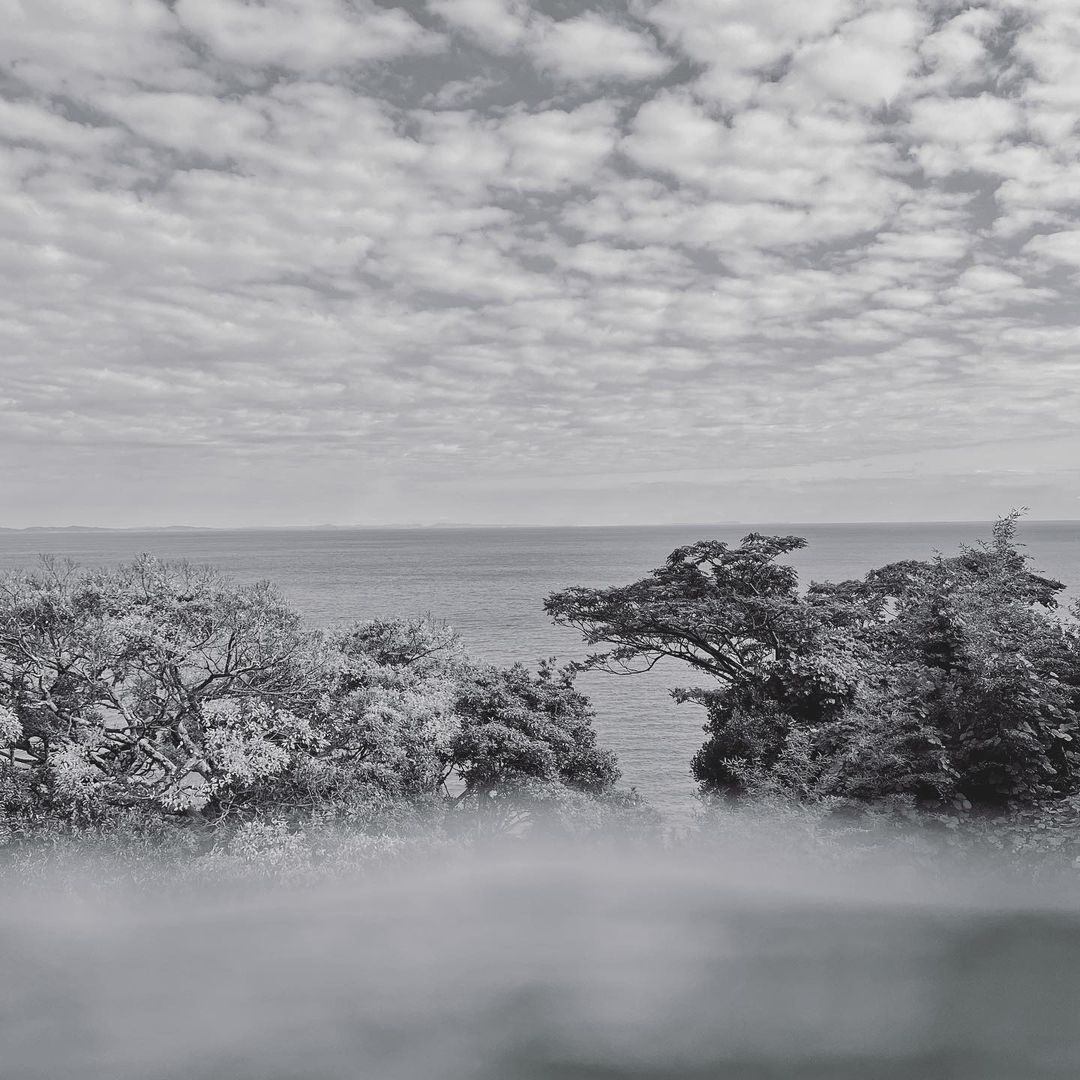
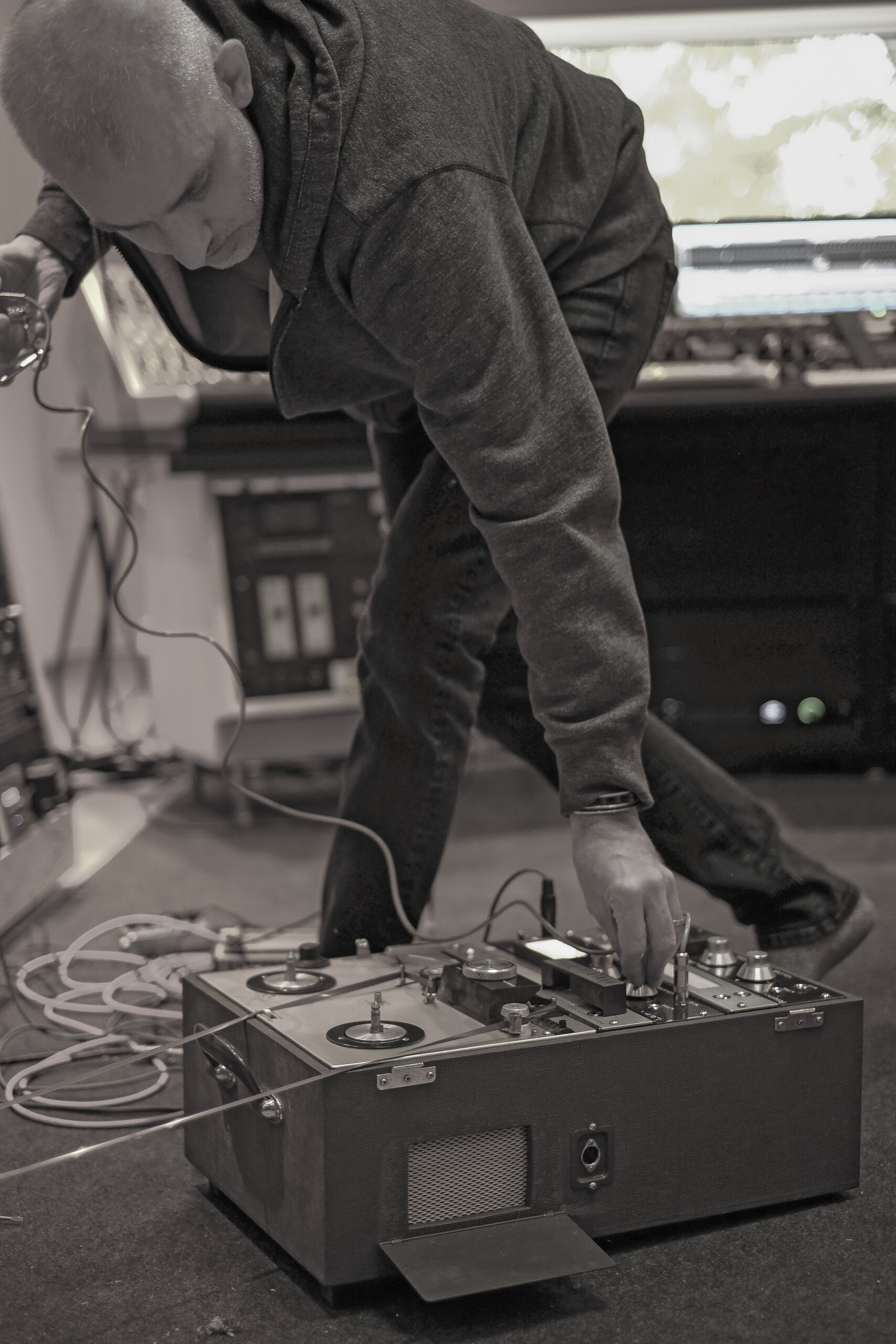
What is your favorite piece of gear…
What is your favorite piece of gear…
in your studio that is not a synth that you can’t do without?
in your studio that is not a synth that you can’t do without?
That would probably be more “boring” necessities such as convertors (Crane Song HEDD Quantum) and interfaces (Lynx Aurora[n], UA Apollo 16) which need to not only sound great but be rock solid reliable. Also my studio monitors (Geithain RL901K and RL934K) are very special to me. They sound beautiful and natural but are also honest and translate well outside of my studio which is the most important feature that I look for in a monitor, especially as a mastering engineer. Undeniably the centerpiece of my studio, however, is the API-1608ii console. This, along with the patch bays, ties everything together into a manageable system and allows me incredible flexibility with the way signals can be routed. I use a lot of outboard equipment and effects and have used some form of mixer or console for many decades. It’s how I started and how I feel most comfortable and inspired working.
Although my studio is dominated by synths I don’t necessarily consider that to be my primary instrument. To me the entire studio itself is my instrument with interacting parts, a living organism of which the synthesizers are only a part.
Using presets or patching your own sounds?
Using presets or patching your own sounds?
Never ever presets or purchased sounds. Of course for me the purpose and fun of a synthesizer is to program and create your own sounds… but on a very basic level i would not want to make my music with someone else’s sounds. That doesn’t make sense to me.
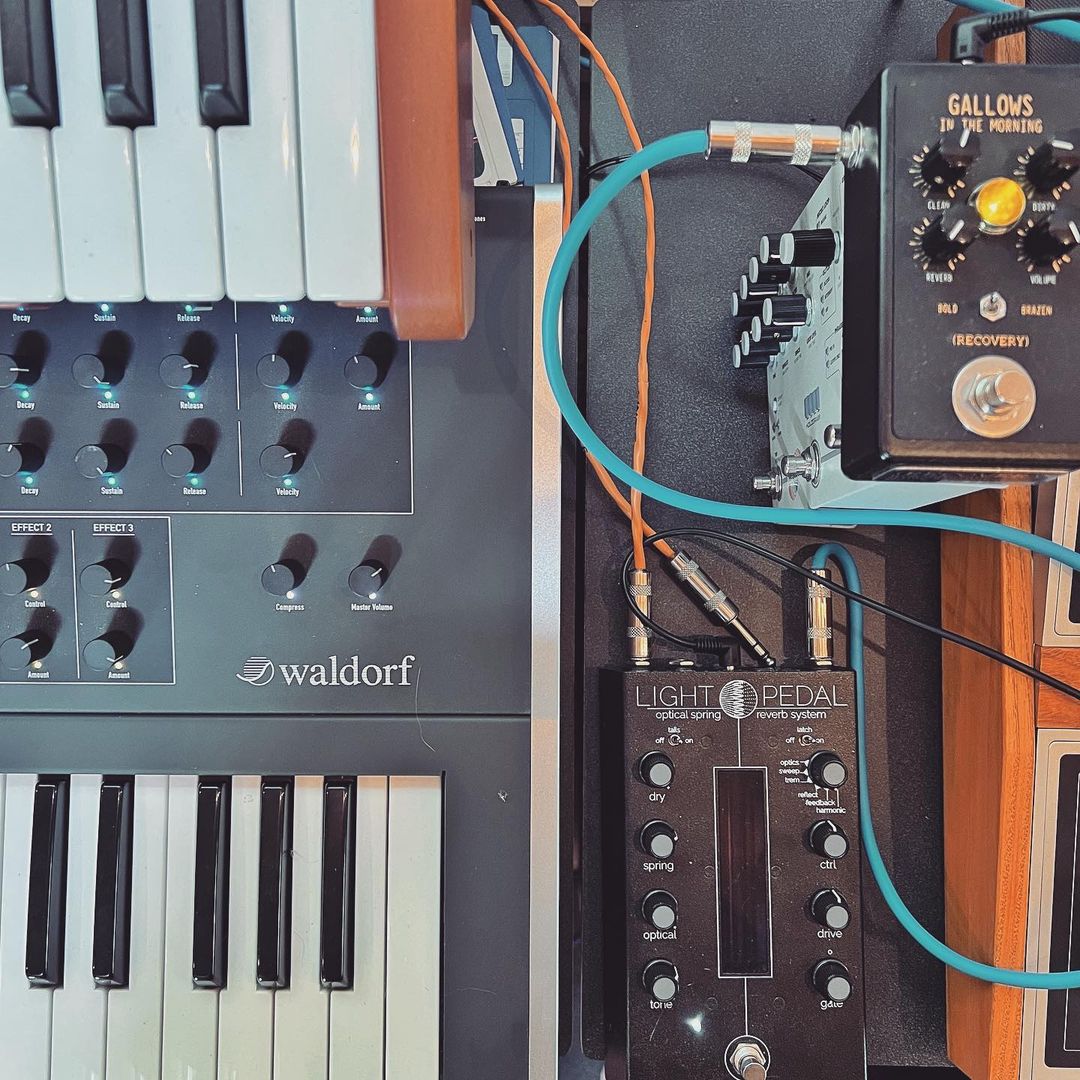
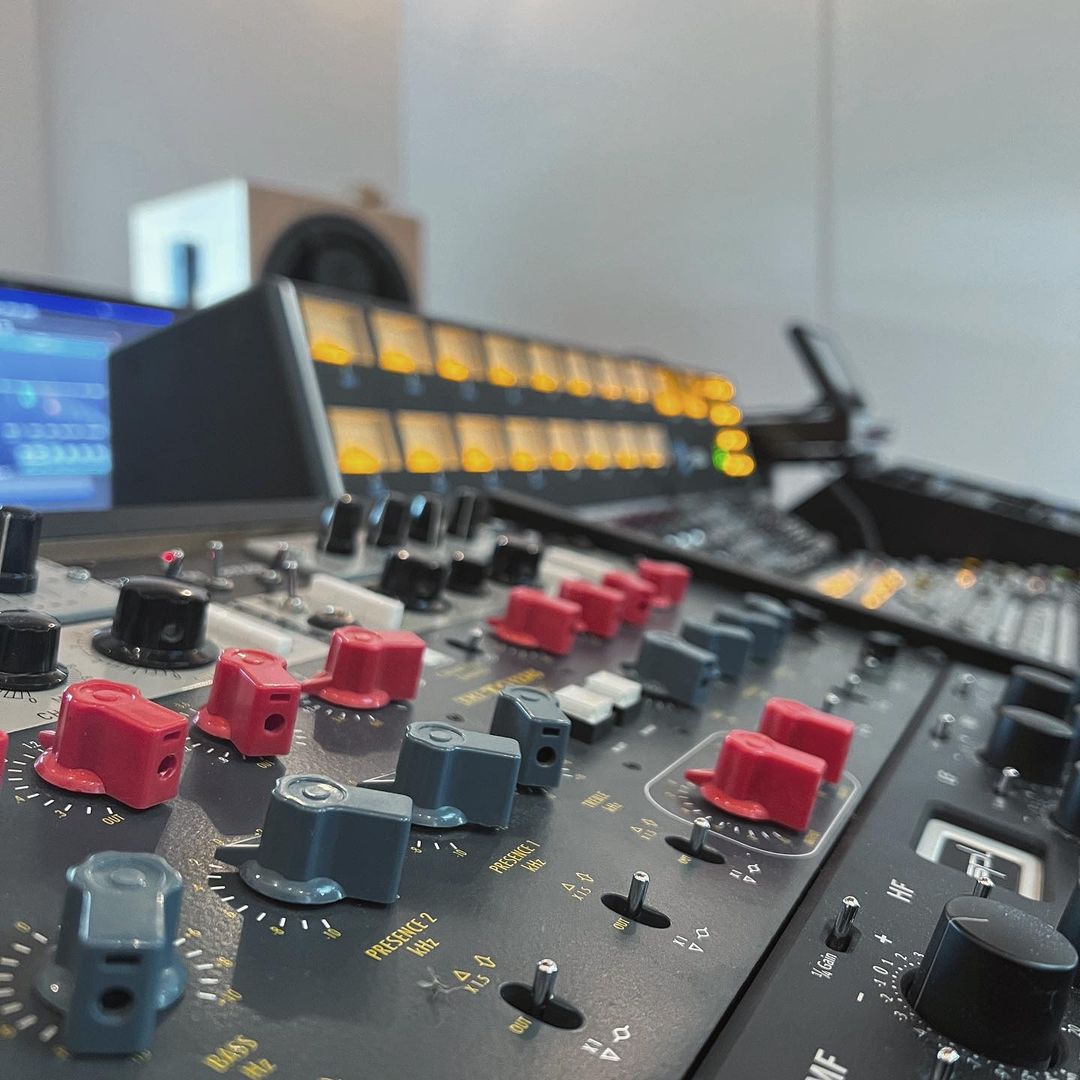
What is your production process:
What is your production process:
in-the-box or played live?
in-the-box or played live?
I only have one or two software synths but rarely use them, it’s all hardware. Same with most of my reverb and delay effects. I just enjoy working with hardware more. i Do most of the precision mixing in Pro Tools like corrective EQ’ing, and then stem everything out to the API for the actual mix down and more broad-stroke EQ with API, Rupert Neve and Electrodyne EQs. I tend to get very specific and detail oriented with mixing so i prefer the precision and recall ability of software in that situation, but the general flow and all of the tracking is done analogue.
At which time of day or night…
At which time of day or night…
would we meet you most often in your studio?
would we meet you most often in your studio?
Both! I am lucky to call the world of music production my career and life. As much fun as it is it is also a business. During the daytime “work” hours I am running my business as a mastering engineer, so every day working on other artists’ releases. In the evening is when I work on my own music and, frankly, I’m not sure my music sounds very good in the daytime anyway. I always make final mixes at night.
How does your live set-up look like?
How does your live set-up look like?
I don’t play live too often so the setup changes quite a bit. Usually it is some combination of pedals and a eurorack system with an OP-1 and Norns supplying tones and a microphone or cassette players to capture sounds live. My performances are mostly based on live looping and I use pedals for that. My favorites being the Strymon Volante and EHX 22500.
Which role do Waldorf synths play in your music?
Which role do Waldorf synths play in your music?
I have owned many Waldorf synths over the years. A couple of Microwave 1s, an XT, a Blofeld, even the Attack drum synth rack.. Those have been replaced by the Quantum that I currently own. The Quantum is used often in my productions, usually for more complex textural sounds and almost always for very digital, yet organic and worn sounds. I don’t think I’ve ever made a traditional subtractive-type sound with it. Since owning the original Microwave many years ago I have been a big fan of wavetable synthesis and the glassy and sine-like tones that come out. Almost all of my sounds are based on sine waves or bell-type tones and wavetables excel at those. One of my favorite ways to use the Quantum is to hold a sustained sound and use looping envelopes that control various parameters to create movements and phrases almost like the function of a traditional looping pedal and the patches start to approach generative territory.
On what projects you are currently working?
I just finished my first EP for the label Nettwerk Records which will be rolled out by June and will be starting a new full length album for them shortly. For the past year I’ve been working very hard with Joseph Branciforte who runs a label called Greyfade. He has painstakingly transcribed an album of mine from 20 years ago called Stil. for an ensemble consisting of clarinet, contrabass, flute, vibraphone and acoustic guitar (among other instruments) and we are creating an all-acoustic version of this very experimental electronic album with an extremely talented cast of players. The results have been pretty incredible, hearing this work come alive with acoustic instruments. This will come out on Nettwerk when it’s done, in the next few months I hope. I also have a couple of collaborations in the works that I look forward to sharing.
Follow Taylor:
Taylor Deupree
Deupree is an accomplished sound artist whose recordings, rich with abstract atmospherics, have appeared on numerous record labels, and well as in site-specific installations at such institutions as the ICC (Tokyo, Japan) and the Yamaguchi Center for Arts and Media (Yamaguchi, Japan). He started out, in the 1990s, making new noises that edged outward toward the fringes of techno, and in time he found his own path to follow. His music today emphasizes a hybrid of natural sounds and technological mediation. It’s marked by a deep attention to stillness, to an almost desperate near-silence. His passion for the studio as a recording instrument is paramount in his work, but there is no hint of digital idolatry. If anything, his music shows a marked attention to the aesthetics of error and the imperfect beauty of nature, to the short circuits not only in technological systems but in human perception.

And though there is an aura of insularity to Depuree’s work, he is a prolific collaborator, having collaborated with the likes of Ryuichi Sakamoto, David Sylvian, Christian Fennesz, Ichiko Aoba, S. Carey, Stephan Mathieu, Stephen Vitiello, Marcus Fischer, Arovane, Federico Durand, Christopher Willits, Frank Bretschneider, and Tetsu Inoue just to name a few.
Deupree dedicates as much time to other people’s music as he does to his own. In 1997 he founded the record label 12k, which since then has released over 150 recordings by some of the most accomplished musicians and modern sound artists of our time. Many share with Deupree an interest in stark minimalism, but the label has also found room for, located a common ground with, the acoustic avant-garde, the instrumental derivations of post-rock, and the synthetic extremes of techno.

How did you start making music?
How did you start making music?
I was a young teenager in the 80’s and come from a musical family. As soon as I heard synth-based music I knew that being a musician was my calling. At the time I was a drummer in the school band but began to research synths. Before the internet it was Keyboard Magazine and hanging out in music stores. Once I saw the artist Howard Jones play live I realized this opportunity to be a “one man band,” to be able to create this music by myself. It was incredibly eye-opening. I sold my drum set and bought a synth (Juno-106). I met a guy in my school who was into the same music as I was and had also just bought a synth (a Korg DW-8000) and introduced me to “Thursday Afternoon” by Brian Eno and together we spent the rest of high school creating our own music and slowly building up a small studio of synths, drum machines and a 4-track recorder. I never stopped.

What was your first synth?
What was your first synth?
It was the aforementioned Juno-106 and I remember thinking, naively, that now, with a synthesizer, i could literally make any sound in the world. Of course, I learned quickly the limitations of the instrument and thus began decades of buying, selling and exploring instruments that could bring the sounds in my head out into the ether.

What is the first thing you do…
What is the first thing you do…
with it when approaching a new synth?
with it when approaching a new synth?
The first thing is to sit with the manual and read it cover to cover while the synth is in front of me stepping through the features. I love reading manuals and find that knowing all that an instrument can do (especially the idiosyncratic system/management type of stuff) speeds up the process in using it. I also find that the more you know about a synth the easier it is to break its rules. As I’m going through the synth and manual i will start writing over the presets with my own patches. I have been programming synths ever since that 106 and it’s a bit part of my workflow. Sometimes i’ll simply INIT every patch before i start, if possible.

What inspires your music?
What inspires your music?
As typical as it sounds, I’m inspired mostly by nature. Not only its beauty and quietness but also its power and danger. I seem to gravitate towards stark landscapes such as the snowy winter or the rugged, minimalist beauty of places Iceland. This quiet, but powerful presentation of nature I find affects me pretty deeply. It is the balance between beauty and fragility, the hush and peacefulness of landscape while at the same time being keenly aware that mother nature, not you, is in control. I also find the seeming randomness and imperfections of natural objects are a huge inspiration to me. I like sounds that are rough around the edges, a little worn away. Scrape off the shine to reveal soul and story underneath.

What is your favorite piece of gear…
What is your favorite piece of gear…
in your studio that is not a synth that you can’t do without?
in your studio that is not a synth that you can’t do without?
That would probably be more “boring” necessities such as convertors (Crane Song HEDD Quantum) and interfaces (Lynx Aurora[n], UA Apollo 16) which need to not only sound great but be rock solid reliable. Also my studio monitors (Geithain RL901K and RL934K) are very special to me. They sound beautiful and natural but are also honest and translate well outside of my studio which is the most important feature that I look for in a monitor, especially as a mastering engineer. Undeniably the centerpiece of my studio, however, is the API-1608ii console. This, along with the patch bays, ties everything together into a manageable system and allows me incredible flexibility with the way signals can be routed. I use a lot of outboard equipment and effects and have used some form of mixer or console for many decades. It’s how I started and how I feel most comfortable and inspired working.
Although my studio is dominated by synths I don’t necessarily consider that to be my primary instrument. To me the entire studio itself is my instrument with interacting parts, a living organism of which the synthesizers are only a part.

Using presets or patching your own sounds?
Never ever presets or purchased sounds. Of course for me the purpose and fun of a synthesizer is to program and create your own sounds… but on a very basic level i would not want to make my music with someone else’s sounds. That doesn’t make sense to me.

What is your production process:
What is your production process:
in-the-box or played live?
in-the-box or played live?
I only have one or two software synths but rarely use them, it’s all hardware. Same with most of my reverb and delay effects. I just enjoy working with hardware more. i Do most of the precision mixing in Pro Tools like corrective EQ’ing, and then stem everything out to the API for the actual mix down and more broad-stroke EQ with API, Rupert Neve and Electrodyne EQs. I tend to get very specific and detail oriented with mixing so i prefer the precision and recall ability of software in that situation, but the general flow and all of the tracking is done analogue.

At which time of day or night…
At which time of day or night…
would we meet you most often in your studio?
would we meet you most often in your studio?
Both! I am lucky to call the world of music production my career and life. As much fun as it is it is also a business. During the daytime “work” hours I am running my business as a mastering engineer, so every day working on other artists’ releases. In the evening is when I work on my own music and, frankly, I’m not sure my music sounds very good in the daytime anyway. I always make final mixes at night.
How does your live set-up look like?
I don’t play live too often so the setup changes quite a bit. Usually it is some combination of pedals and a eurorack system with an OP-1 and Norns supplying tones and a microphone or cassette players to capture sounds live. My performances are mostly based on live looping and I use pedals for that. My favorites being the Strymon Volante and EHX 22500.
Which role do Waldorf synths play in your music?
Which role do Waldorf synths play in your music?
I have owned many Waldorf synths over the years. A couple of Microwave 1s, an XT, a Blofeld, even the Attack drum synth rack.. Those have been replaced by the Quantum that I currently own. The Quantum is used often in my productions, usually for more complex textural sounds and almost always for very digital, yet organic and worn sounds. I don’t think I’ve ever made a traditional subtractive-type sound with it. Since owning the original Microwave many years ago I have been a big fan of wavetable synthesis and the glassy and sine-like tones that come out. Almost all of my sounds are based on sine waves or bell-type tones and wavetables excel at those. One of my favorite ways to use the Quantum is to hold a sustained sound and use looping envelopes that control various parameters to create movements and phrases almost like the function of a traditional looping pedal and the patches start to approach generative territory.
On what projects are you currently working on?
I just finished my first EP for the label Nettwerk Records which will be rolled out by June and will be starting a new full length album for them shortly. For the past year I’ve been working very hard with Joseph Branciforte who runs a label called Greyfade. He has painstakingly transcribed an album of mine from 20 years ago called Stil. for an ensemble consisting of clarinet, contrabass, flute, vibraphone and acoustic guitar (among other instruments) and we are creating an all-acoustic version of this very experimental electronic album with an extremely talented cast of players. The results have been pretty incredible, hearing this work come alive with acoustic instruments. This will come out on Nettwerk when it’s done, in the next few months I hope. I also have a couple of collaborations in the works that I look forward to sharing.
Follow Taylor:
Taylor Deupree
Deupree is an accomplished sound artist whose recordings, rich with abstract atmospherics, have appeared on numerous record labels, and well as in site-specific installations at such institutions as the ICC (Tokyo, Japan) and the Yamaguchi Center for Arts and Media (Yamaguchi, Japan). He started out, in the 1990s, making new noises that edged outward toward the fringes of techno, and in time he found his own path to follow. His music today emphasizes a hybrid of natural sounds and technological mediation. It’s marked by a deep attention to stillness, to an almost desperate near-silence. His passion for the studio as a recording instrument is paramount in his work, but there is no hint of digital idolatry. If anything, his music shows a marked attention to the aesthetics of error and the imperfect beauty of nature, to the short circuits not only in technological systems but in human perception.

And though there is an aura of insularity to Depuree’s work, he is a prolific collaborator, having collaborated with the likes of Ryuichi Sakamoto, David Sylvian, Christian Fennesz, Ichiko Aoba, S. Carey, Stephan Mathieu, Stephen Vitiello, Marcus Fischer, Arovane, Federico Durand, Christopher Willits, Frank Bretschneider, and Tetsu Inoue just to name a few.
Deupree dedicates as much time to other people’s music as he does to his own. In 1997 he founded the record label 12k, which since then has released over 150 recordings by some of the most accomplished musicians and modern sound artists of our time. Many share with Deupree an interest in stark minimalism, but the label has also found room for, located a common ground with, the acoustic avant-garde, the instrumental derivations of post-rock, and the synthetic extremes of techno.

How did you start making music?
How did you start making music?
I was a young teenager in the 80’s and come from a musical family. As soon as I heard synth-based music I knew that being a musician was my calling. At the time I was a drummer in the school band but began to research synths. Before the internet it was Keyboard Magazine and hanging out in music stores. Once I saw the artist Howard Jones play live I realized this opportunity to be a “one man band,” to be able to create this music by myself. It was incredibly eye-opening. I sold my drum set and bought a synth (Juno-106). I met a guy in my school who was into the same music as I was and had also just bought a synth (a Korg DW-8000) and introduced me to “Thursday Afternoon” by Brian Eno and together we spent the rest of high school creating our own music and slowly building up a small studio of synths, drum machines and a 4-track recorder. I never stopped.

What was your first synth?
What was your first synth?
It was the aforementioned Juno-106 and I remember thinking, naively, that now, with a synthesizer, i could literally make any sound in the world. Of course, I learned quickly the limitations of the instrument and thus began decades of buying, selling and exploring instruments that could bring the sounds in my head out into the ether.
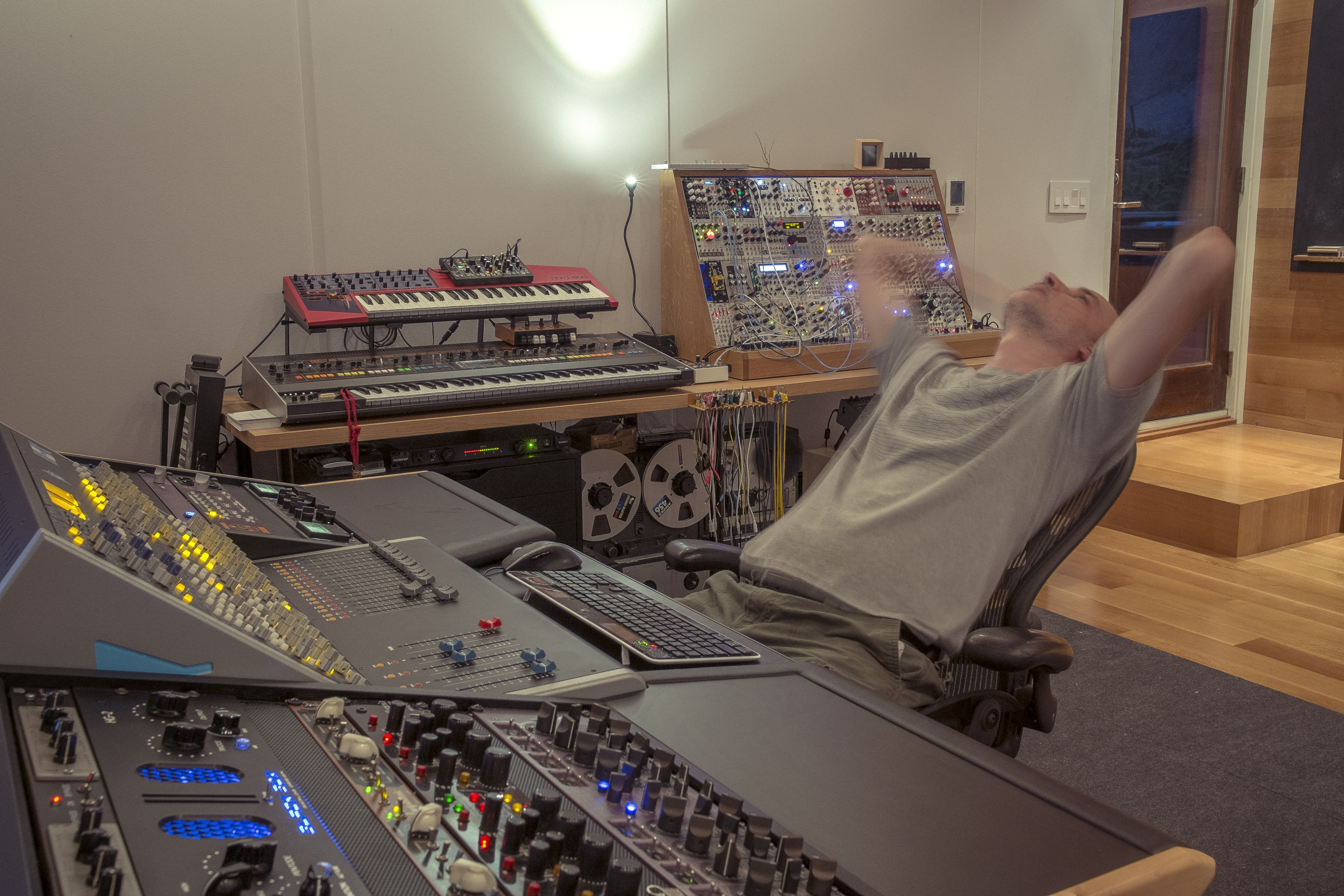
What is the first thing you do…
with it when approaching a new synth?
The first thing is to sit with the manual and read it cover to cover while the synth is in front of me stepping through the features. I love reading manuals and find that knowing all that an instrument can do (especially the idiosyncratic system/management type of stuff) speeds up the process in using it. I also find that the more you know about a synth the easier it is to break its rules. As I’m going through the synth and manual i will start writing over the presets with my own patches. I have been programming synths ever since that 106 and it’s a bit part of my workflow. Sometimes i’ll simply INIT every patch before i start, if possible.

What inspires your music?
What inspires your music?
As typical as it sounds, I’m inspired mostly by nature. Not only its beauty and quietness but also its power and danger. I seem to gravitate towards stark landscapes such as the snowy winter or the rugged, minimalist beauty of places Iceland. This quiet, but powerful presentation of nature I find affects me pretty deeply. It is the balance between beauty and fragility, the hush and peacefulness of landscape while at the same time being keenly aware that mother nature, not you, is in control. I also find the seeming randomness and imperfections of natural objects are a huge inspiration to me. I like sounds that are rough around the edges, a little worn away. Scrape off the shine to reveal soul and story underneath.

What is your favorite
piece of gear…
piece of gear…
in your studio that is not a synth that you can’t do without?
That would probably be more “boring” necessities such as convertors (Crane Song HEDD Quantum) and interfaces (Lynx Aurora[n], UA Apollo 16) which need to not only sound great but be rock solid reliable. Also my studio monitors (Geithain RL901K and RL934K) are very special to me. They sound beautiful and natural but are also honest and translate well outside of my studio which is the most important feature that I look for in a monitor, especially as a mastering engineer. Undeniably the centerpiece of my studio, however, is the API-1608ii console. This, along with the patch bays, ties everything together into a manageable system and allows me incredible flexibility with the way signals can be routed. I use a lot of outboard equipment and effects and have used some form of mixer or console for many decades. It’s how I started and how I feel most comfortable and inspired working.
Although my studio is dominated by synths I don’t necessarily consider that to be my primary instrument. To me the entire studio itself is my instrument with interacting parts, a living organism of which the synthesizers are only a part.

Using presets or patching
your own sounds?
your own sounds?
Never ever presets or purchased sounds. Of course for me the purpose and fun of a synthesizer is to program and create your own sounds… but on a very basic level i would not want to make my music with someone else’s sounds. That doesn’t make sense to me.

What is your
production process:
production process:
in-the-box or played live?
I only have one or two software synths but rarely use them, it’s all hardware. Same with most of my reverb and delay effects. I just enjoy working with hardware more. i Do most of the precision mixing in Pro Tools like corrective EQ’ing, and then stem everything out to the API for the actual mix down and more broad-stroke EQ with API, Rupert Neve and Electrodyne EQs. I tend to get very specific and detail oriented with mixing so i prefer the precision and recall ability of software in that situation, but the general flow and all of the tracking is done analogue.

At which time of
day or night…
day or night…
would we meet you most often in your studio?
Both! I am lucky to call the world of music production my career and life. As much fun as it is it is also a business. During the daytime “work” hours I am running my business as a mastering engineer, so every day working on other artists’ releases. In the evening is when I work on my own music and, frankly, I’m not sure my music sounds very good in the daytime anyway. I always make final mixes at night.
How does your live
set-up look like?
set-up look like?
I don’t play live too often so the setup changes quite a bit. Usually it is some combination of pedals and a eurorack system with an OP-1 and Norns supplying tones and a microphone or cassette players to capture sounds live. My performances are mostly based on live looping and I use pedals for that. My favorites being the Strymon Volante and EHX 22500.
Which role do
Waldorf synths
play in your music?
Waldorf synths
play in your music?
I have owned many Waldorf synths over the years. A couple of Microwave 1s, an XT, a Blofeld, even the Attack drum synth rack.. Those have been replaced by the Quantum that I currently own. The Quantum is used often in my productions, usually for more complex textural sounds and almost always for very digital, yet organic and worn sounds. I don’t think I’ve ever made a traditional subtractive-type sound with it. Since owning the original Microwave many years ago I have been a big fan of wavetable synthesis and the glassy and sine-like tones that come out. Almost all of my sounds are based on sine waves or bell-type tones and wavetables excel at those. One of my favorite ways to use the Quantum is to hold a sustained sound and use looping envelopes that control various parameters to create movements and phrases almost like the function of a traditional looping pedal and the patches start to approach generative territory.
On what projects
are you currently
working on?
are you currently
working on?
I just finished my first EP for the label Nettwerk Records which will be rolled out by June and will be starting a new full length album for them shortly. For the past year I’ve been working very hard with Joseph Branciforte who runs a label called Greyfade. He has painstakingly transcribed an album of mine from 20 years ago called Stil. for an ensemble consisting of clarinet, contrabass, flute, vibraphone and acoustic guitar (among other instruments) and we are creating an all-acoustic version of this very experimental electronic album with an extremely talented cast of players. The results have been pretty incredible, hearing this work come alive with acoustic instruments. This will come out on Nettwerk when it’s done, in the next few months I hope. I also have a couple of collaborations in the works that I look forward to sharing.

